The Joseph M. Katz Graduate School of Business at the University of Pittsburgh launched the Center for Sustainable Business (CSB) in 2019 to address this critical historical moment by equipping the business leaders of the 21st century with the knowledge, skills, and community needed to face the concurrent challenges and opportunities in sustainability.
In this context, “sustainability” – the practice of integrating environmental and societal concerns into business models – is emerging as a unifying principle to guide firm behavior. No longer is it considered sufficient or sustainable to devote an arm of the company to philanthropic giving. Rather, sustainable business practice entails making the ethical and strategic concerns of all stakeholders central to all aspects of the firm. This requires a continuous process of engagement with multiple stakeholders who influence or are influenced by the company, including customers, employees, investors, regulators, and activists.
Leading conceptual and empirical research shows that – when implemented correctly – sustainability initiatives can have positive social and environmental effects as well as contribute to a company’s competitive advantage, drive innovation within and across industries, reduce exposure to risk, and positively impact various measures of financial performance. In other words, it is possible to “do well by doing good.” Equally, caring for the wellbeing of the planet and its people while conducting business is, in our view, simply the right thing to do. While this kind of thinking is powerful and would benefit both business and society, achieving this symbiotic relationship between business, society, and the environment requires a strategic understanding of when, why, and how sustainability initiatives create value for all stakeholders.
We accomplish this by leveraging the unique expertise and capabilities of an active research and teaching community together with the applied knowledge and industry experience of some of the world’s most influential companies. The work of the CSB consists of three broad programmatic areas: research, education, and engagement. In all three of these areas, we utilize our position as a leading academic institution to engage companies in the adoption of more sustainable business practices. We help companies and other stakeholders (individuals, government entities, non-profits, foundations, etc.) capitalize on short-, medium-, and long-term investments in the human resources, intellectual know-how, and physical and social infrastructure needed to realize a more sustainable future for our local and global communities.
Key Moments in CSB History
- Launch Event
-
October 24, 2019
The Center for Sustainable Business launched with a daylong event that drew more than 100 partners and guests.
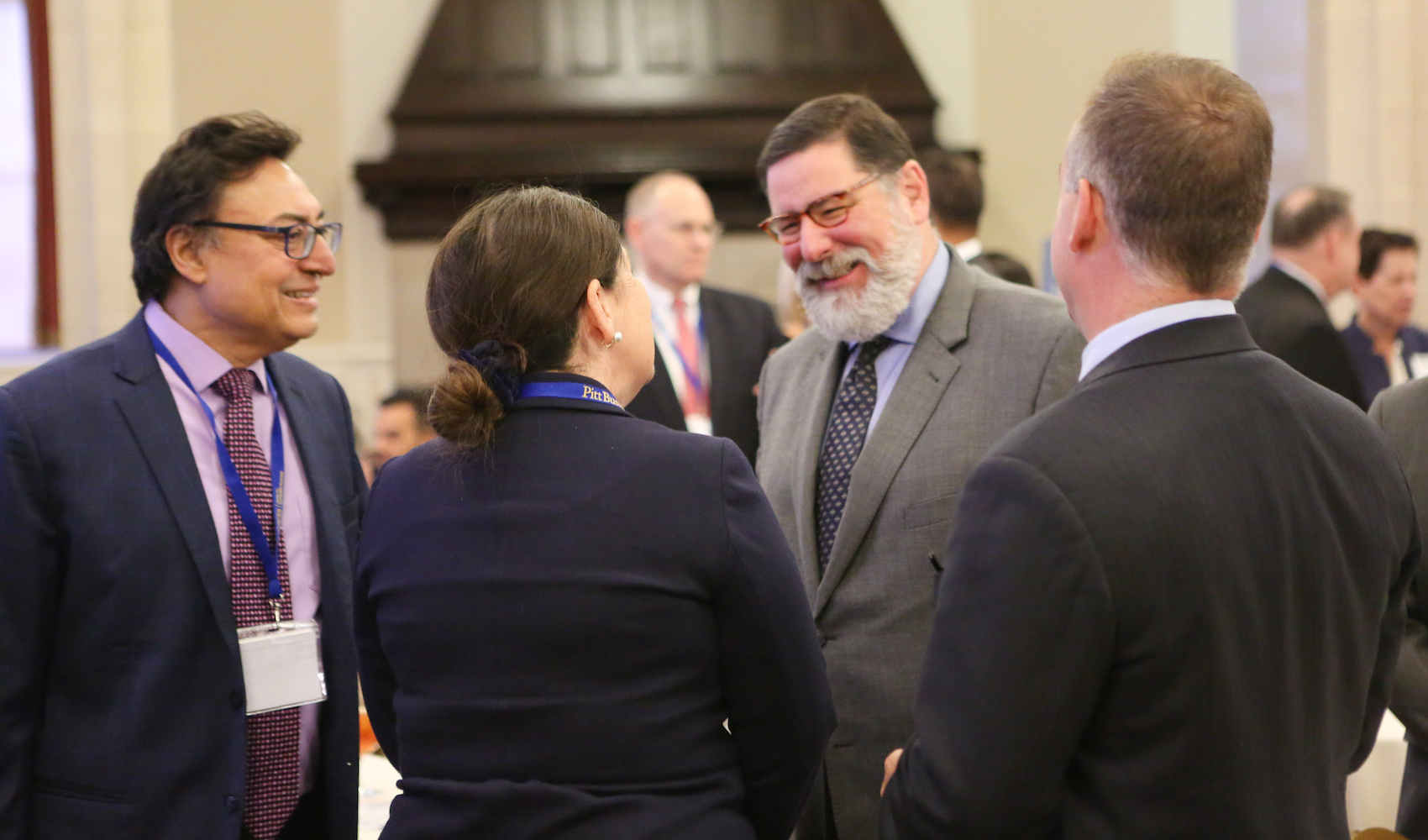
Media coverage of the event: University Times, Pittwire, WTAE-TV Pittsburgh
Agenda
View the full agenda and speaker bios.
Opening Remarks
"Introducing the Center for Sustainable Business at Pitt"- Arjang A. Assad, Henry E. Haller Jr. Dean
- Ann E. Cudd, Provost & Senior Vice Chancellor
- William Peduto, Mayor of the City of Pittsburgh
- CB Bhattacharya, CSB Director & H.J. Zoffer Chair in Sustainability & Ethics
The event opened with welcoming remarks from campus and community leaders who applauded the Center’s contribution towards building a sustainable future. “Together we are committed to facilitating partnerships for a more sustainable world,” said Provost and Senior Vice Chancellor Ann E. Cudd.
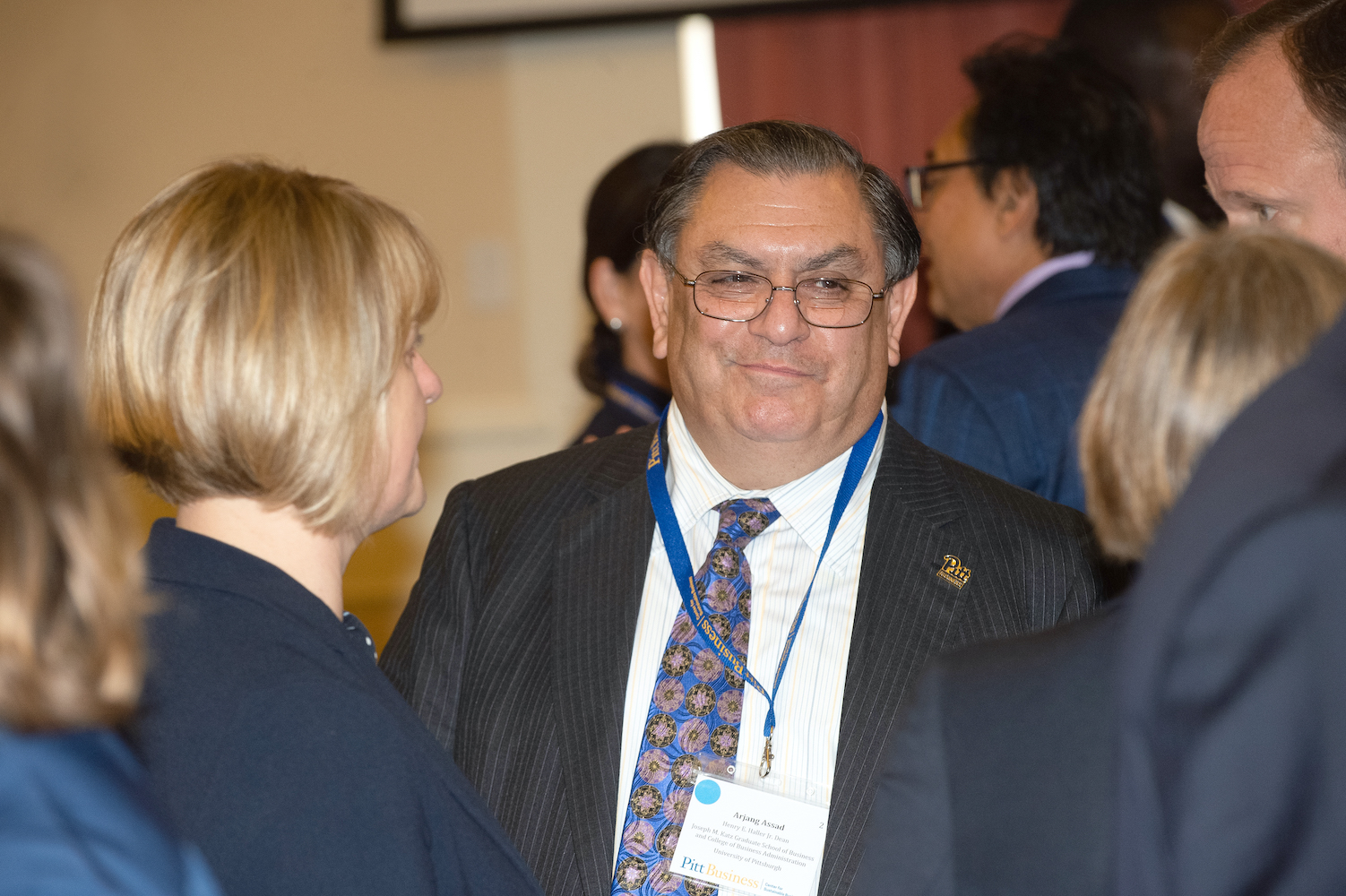
Mayor Bill Peduto added: “The U.N. SDGs that were created for nations to follow can only be implemented by institutions, cities and corporations at the local level. When cities and companies decide to adopt those principles, we can change the world.” Since its inception, the CSB continues to work closely with the Mayor's Office and the City of Pittsburgh.
Partnership is the New Leadership
"Using Strategic Partnerships to Leverage Corporate Sustainability"- Andrew McElwaine, Vice President, The Heinz Endowments
- Wayne S. Balta, Vice President, Corporate Environmental Affairs & Product Safety, IBM Corporation
- Teressa Szelest, President, Market & Business Development, BASF
- Marcus Krembs, Director of Sustainability, Enel North America
- Moderated by Dr. Leslie Marshall
A panel of nonprofit and business leaders representing some of the CSB’s founding sponsors discussed the importance of collaboration. “The Pitt CSB’s collaborative strategies for guiding organizations toward more sustainable practices will help improve regional environmental quality, promote a higher quality of life and create a more prosperous future for all,” said Andrew McElwaine, vice president of sustainability at The Heinz Endowments.
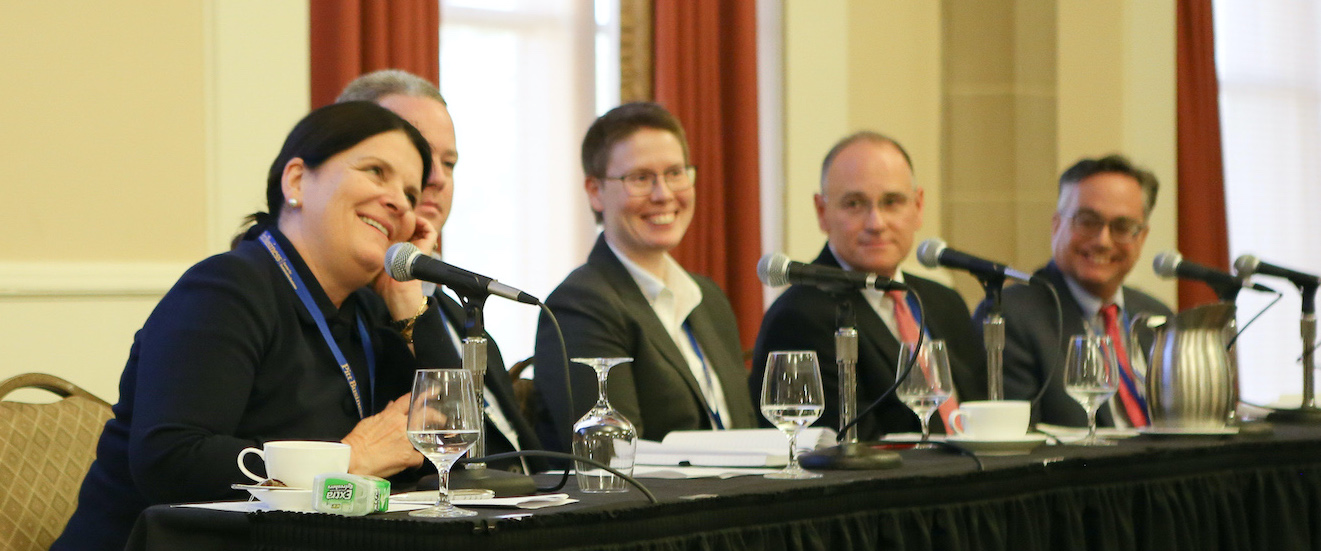
Training Future Leaders
"Creating a Culture of Sustainability Ownership: The Sustainability Generalist"Workshop Moderated by Prof. CB Bhattacharya
Prof. CB Bhattacharya led a hands-on workshop to give invited guests a glimpse into what lies ahead. “Attention to the triple bottom line of people, planet and profits has never been more important in business, but companies often fail to reap the full value of their investments in sustainability and corporate responsibility because sustainability is not well integrated throughout the organization,” said Bhattacharya. Attendees gathered in small discussion groups to brainstorm around the topic of what it would take to make every one a "sustainability generalist" — what tools, skills, resources, and training that would be needed to realize a world where every employee is empowered to think and act through a sustainability lens regardless of their role or title within the organization?
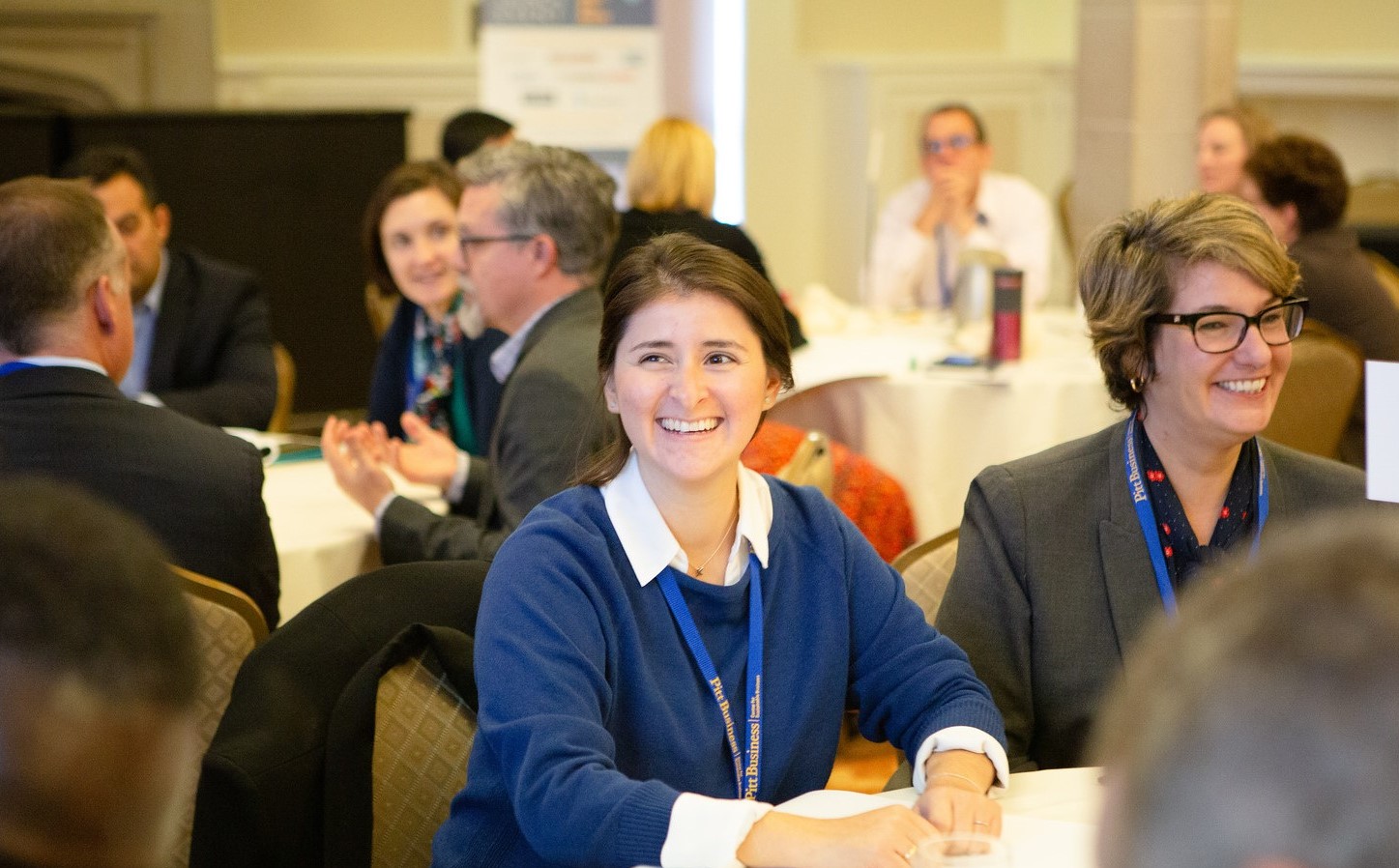
Research in Practice
"Investing in Corporate-Academic Partnerships to Generate New Knowledge"- Andrew Hoffman, Holcim (US) Professor of Sustainable Enterprise, University of Michigan, "The Next Phase of Business Sustainability"
- Karen Winterich, Frank & Mary Smeal Research Fellow and Professor of Marketing, Penn State University, "Knowing What it Makes: How Product Transformation Salience Increases Recycling"
Prof. Andrew Hoffman and Prof. Karen Winterich gave academic presentations highlighting their research in corporate sustainability. Prof. Hoffman discussed the transition business schools must undertake from enterprise integration to market transformation, meaning the level of analysis must shift from individual corporations to the system as a whole. Prof. Winterich explored consumer behavior by taking a close look at how marketing recycled product transformation, such as a water bottle becoming athletic apparel, impacts recycling behavior.
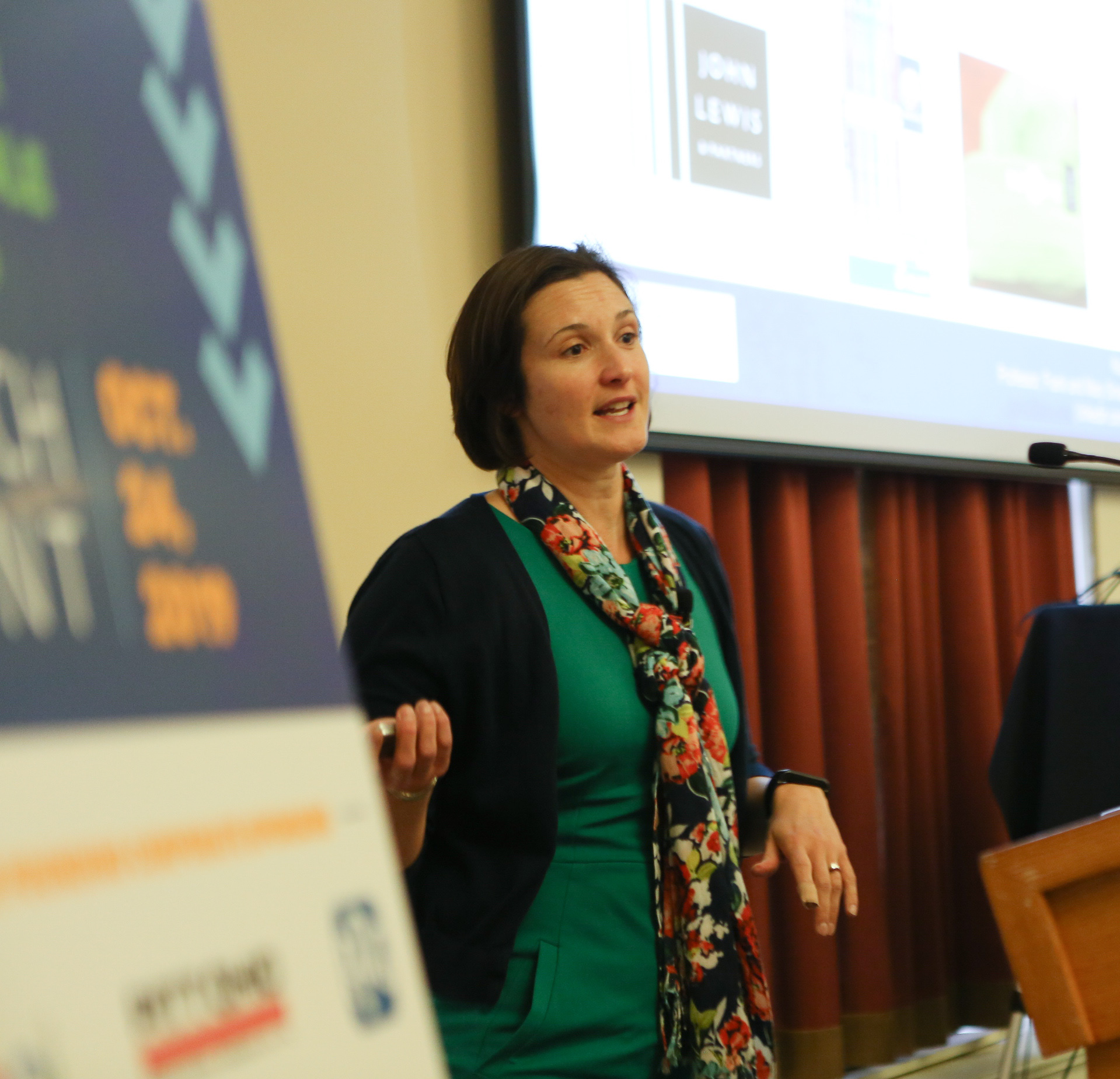
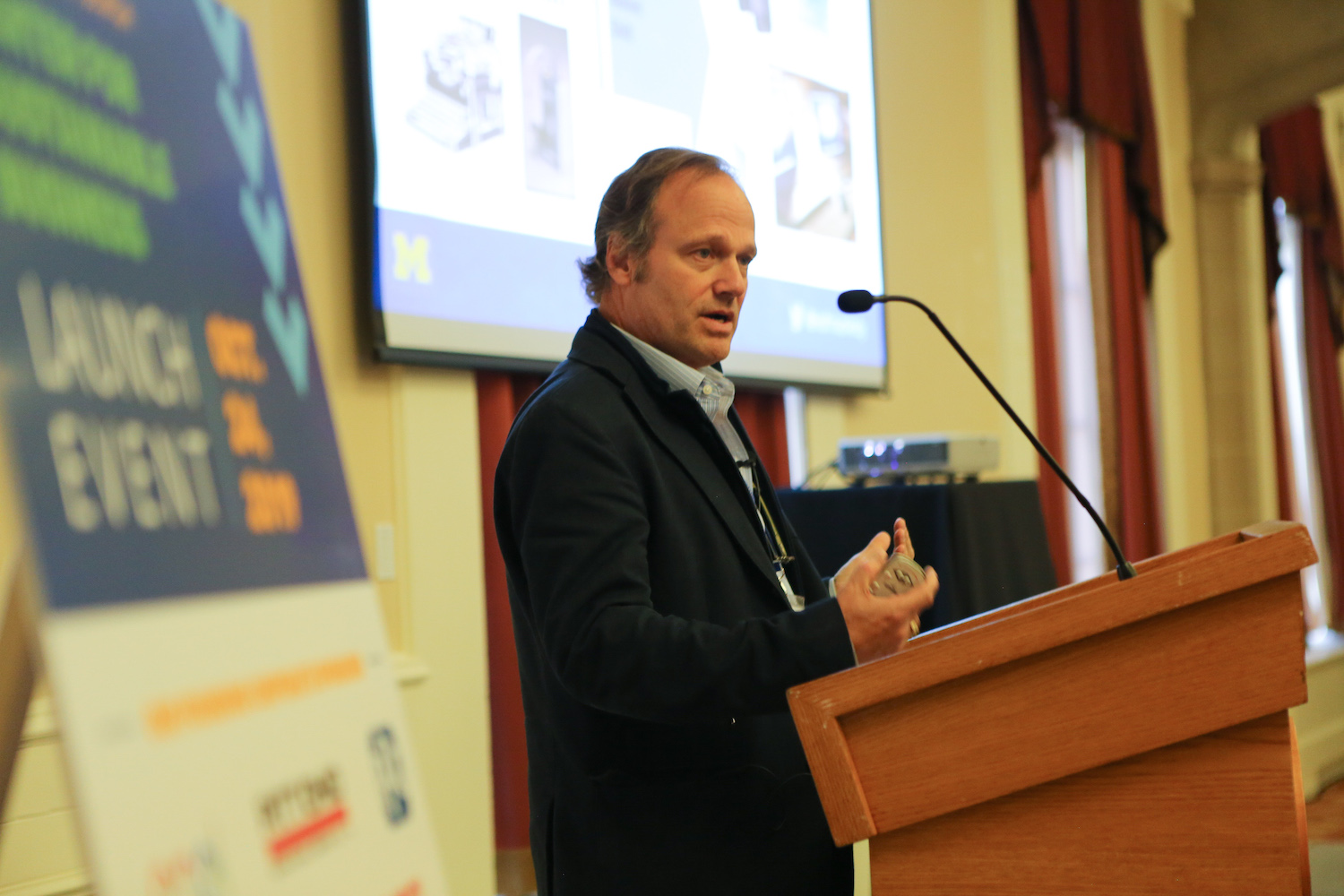
Keynote Address
- John Viera, Former Global Director, Sustainability & Vehicle Environmental Matters at Ford Motor Company, and Current Executive-in-Residence, The Erb Institute, University of Michigan
John Viera delivered an impactful keynote address, in which he reflected on his time at Ford Motor Company and emphasized the value of actionable goals that align with business interests.
Watch John Viera's keynote address »
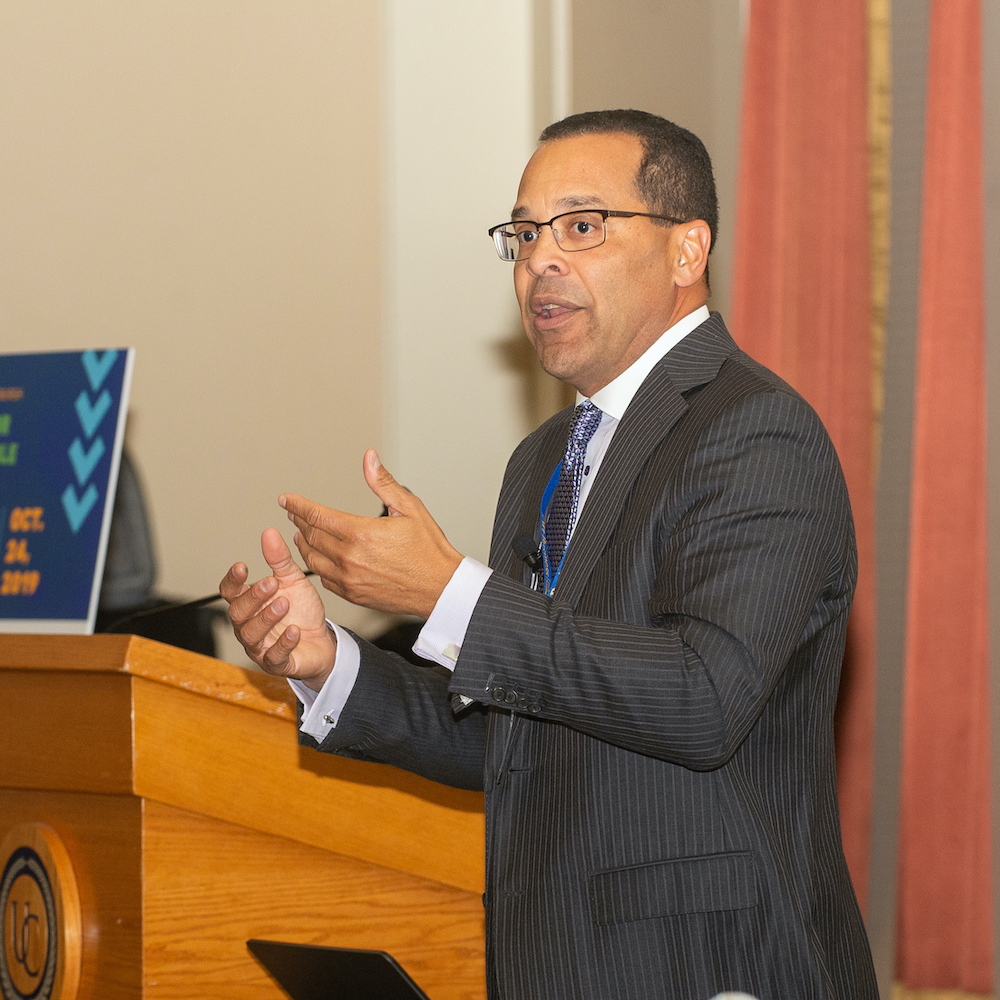
- Marshall Plan for Middle America
-
With a charitable donation and scientific support from the Enel Foundation, the Marshall Plan for Middle America (MP4MA) Roadmap aims to build a regional, multi-sectoral coalition of stakeholders to drive investment in infrastructure and energy diversification that will catalyze more equitable economic recovery while laying a foundation for the Ohio Valley (including Upper Appalachia) to be a global leader in cleaner energy resources and circular economy practices. With the support of all key project partners — including the City of Pittsburgh and Mayor William Peduto, the United Nations Sustainable Development Solutions Network led by Prof. Jeffrey Sachs, and Steel Valley Authority and the Heartland Capital Strategies Network — the MP4MA Roadmap lays out a strategy for regional cooperation that brings together five essential components.
- Reliable research and evidence to help chart the path forward
- Governing institutions with identifiable infrastructure needs and community ties
- Companies to invest in long-term market development and support the transition to more sustainable business practices
- Capital to finance development
- Community oversight, transparency, and accountability.
- Development of 3 Workstreams
-
The Center for Sustainable Business was launched in October of 2019, in a very different market than the one we face today. Thanks to step-change funding and strategic guidance from The Heinz Endowments in November 2021, the Center sought to
- Keep providing the convening value that resonates with companies
- Provide relevant support beyond just convening in order to help companies accelerate their evolution through these market changes of shifting competing stakeholder priorities
- Find the one to three areas we could excel in rather than seek to be all things sustainable business to everyone
Given the seismic shifts in society since our founding, the Center embarked on a journey to hone in on a purpose statement, and new workstreams to meet the challenges of this new era. One key trend seen over the last years is fracture lines across every aspect of the market. The pandemic showed the world that our economies are not as resilient as we need them to be. The new workstreams were a response to where we saw the most need, the fewest resources, and our strengths to:
- Respond to new issues raised by the pandemic and the growing climate crisis, within those
- Focus on the issues with the least resources and greatest Blue Ocean potential, within those
- Leverage the Center’s unique strategy strengths and position as part of an R1 academic institution
The resulting three workstreams are
- Decarbonize Middle America efforts will increase the number of companies in the region with working 2030 Target strategies aligned to the Paris Accord’s 1.5 degrees Celsius ambitions for a just transition to clean and circular economies. This includes the Center’s Marshall Plan for Middle America initiative.
- Workforce 100% efforts will increase the number of companies in the region that turn rhetoric into action with strategies toward workforces 100% representative of their communities with thriving work for all by 2030.
- ESG Rosetta Stone efforts will increase the Environmental, Social, and Governance literacy of the region in partnership with Doughnut Economics Action Lab and others so that literate talent is stepping into more leadership roles in all sizes at all levels and is able to collaborate across all functions by 2025.
